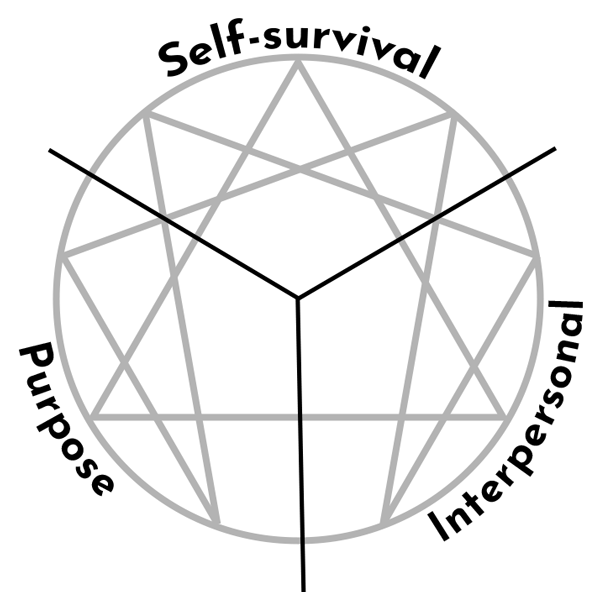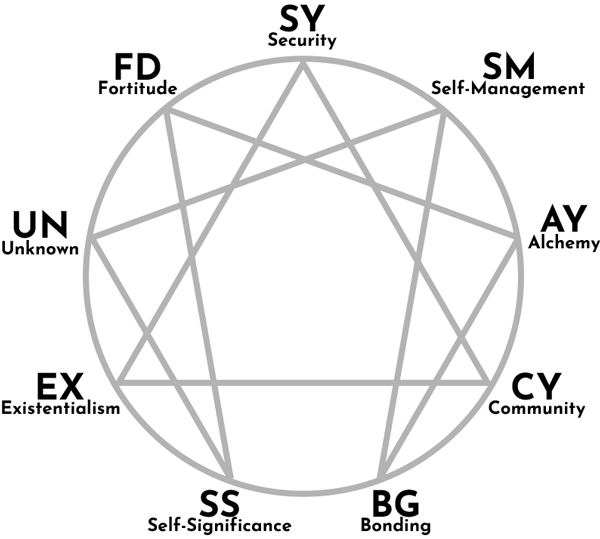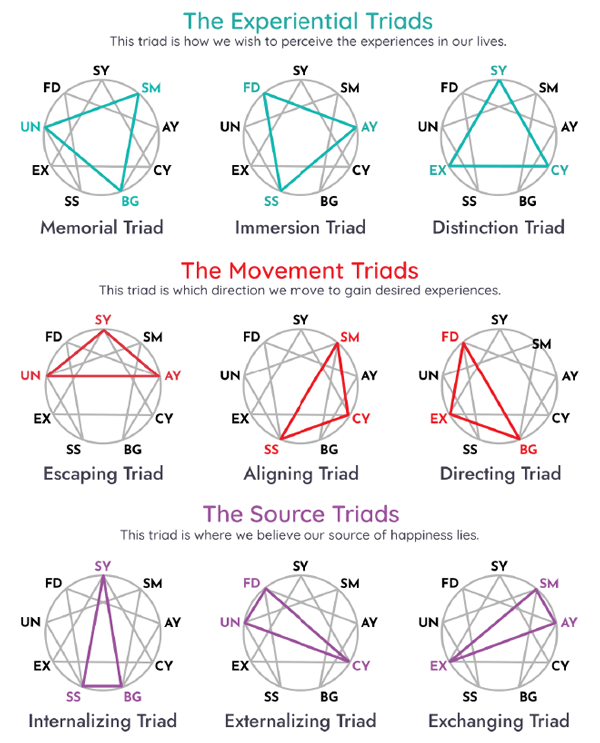Expanded Instincts
The Expanded Instincts are an original creation which expands, reorganizes, and adds in brand new categorizations to the three classic enneagram instincts. The structure of the system is modeled after the ego enneagram and represents the subconscious layer between the egoic unconscious mind and the communicative conscious mind. Expanded instincts consist of 9 instinctual realms, 6 center stackings and 27 instinctual archetypes. To learn more, Join TTV to view in depth classes. To get typed, Click Here.
Core Theory
The core component of the Expanded Instincts is the idea that aliveness can be extracted from the nine instinctual realms. Unlike the ego types in enneagram, the expanded instincts are not running from death, ego death, or perceived danger. There is no fear that drives the types, nor is there any sort of ego strategy that enables them to operate. Instead, they are running towards the feelings of vitality, aliveness, fulfillment, and instinctual highs. Typing yourself and others in this system will require you to make this VERY important distinction between these two concepts. In short, the expanded instincts will ALWAYS be positive symptoms–they are being added into your life to reach the instinctual high. Ego types in enneagram are negative symptoms, as they are all the ways in which you are limiting your personality to fit into one strategy that makes you feel safe or free from danger that leads to death.

The Three Centers
In expanded instincts, there are three centers that contain three realms which represent different areas that offer instinctual highs. SUR represents the self with physical resources, INT represents the self with other people, and PUR represents the self with higher meaning or ideas.
Self-Survival Center (SUR)
The self-survival center is the realm of physical resources through the physical body, comfort, actions, skills, time-management, and ownership over spaces. This center can be split into three distinct realms: Fortitude (FD), Security (SY), and Self-management (SM).
Interpersonal Center (INT)
The interpersonal center is the realm of communication resources through people, relationships, dynamics, bonds, standards, and chemistry. This center can be split into three distinct realms: Alchemy (AY), Community (CY), and Bonding (BG).
Purpose Center (PUR)
The purpose center is the realm of conceptual resources through ideas, goals, existential thoughts, discovery, wonder, significance, reason, and introspection. This center can be split into three distinct realms: Self-significance (SS), Existentialism (EX), and Unknown (UN).

Extended Descriptions For Each Instinct
Fortitude (FD)
Security (SY)
Self-Management (SM)
Alchemy (AY)
Community (CY)
Bonding (BG)
Self-Significance (SS)
Existentialism (EX)
Unknown (UN)
Triads
The triads are three groups of instincts that share a similar perception, action, or movement within the context of the instinctual high. Below are explanations of the main three triad groups.

These triads mark the different ways in which one prefers to perceive reality through the instinctual realms. The experiential triad is significant as it shows how one “hooks in to” the preferred instinctual realm, which results in three vastly different groups of behaviors. This triad is responsible for how one must see things to feel fully alive. It is the most significant triad for typing purposes.
